What is Acid Reflux or Gastroesophageal Reflux?
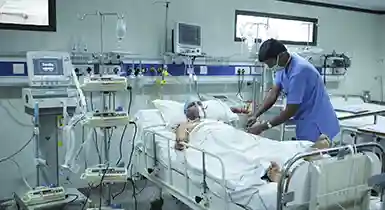
Gastroesophageal reflux disease (GERD) or acid reflux is a very common disorder in the digestive system. The term Gastroesophageal refers to the stomach and the oesophagus. Acid Reflux or Gastroesophageal reflux refers to the back-flow of acid secretions s in the stomach or non-acidic stomach contents back into the oesophagus. Symptoms of Gastroesophageal Reflux The symptoms of reflux oesophagitis is characterized by symptoms depend upon the tissue damage and repeated or prolonged exposure of the lining of the oesophagus to acidic or non-acidic contents from the stomach. In gastroesophageal reflux there is tissue damage in the oesophagus to called reflux esophagitis or erosive GERD. In oesophageal symptoms such as heartburn and regurgitation of acid is most common. But sometimes there are no apparent symptoms in gastroesophageal reflux disease .Symptoms of acid reflux vary from person to person. Periodic heartburn is a very common symptom is after meals, occurring mainly at night and wakes a person from his sleep in gastric reflux. Main cause of this is the acid regurgitation. Other symptoms of reflux oesophagitis: Causes of Gastroesophageal Reflux (GERD) Reflux oesophagitis occurs when the oesophageal defences are overwhelmed and the stomach contents are sent back to the oesophagus due to poor sphincter control mechanism (musculature weakness between the stomach and oesophagus causing acid reflux and damage to the tissues that reflux into the oesophagus. The goal of gastroesophageal reflux disease (GERD) treatment is to: How to Cure Acid Reflux with Medications? Medications IN TREATMENT for GERD: The classes of medications prescribed to treat gastroesophageal reflux disease (GERD) OR esophagitis treatment are pro-motility agents, H2 blockers, and proton pump inhibitors. Lifestyle Changes in treatment of acid reflux: -Dietary changes or changes in daily routine to reduce the complaint of heartburn which can be aggravated by foods Common beverages such as coffee, tea, cola, tomato juice, and citrus juice may aggravate symptoms by irritating the oesophagus or stimulating stomach acid production .Start by reducing fatty foods, onions, and chocolate AND certain foods which can compromise the sphincter’s ability to prevent acid reflux. They can irritate the oesophagus and stimulate stomach acid production Surgery in the treatment of gastroesophageal reflux Surgery in the treatment of acid reflux is an alternative considered when long-term medical treatment is either ineffective or undesirable, or when certain complications of GERD are present. Fundoplication Surgery for Gastroesophageal Reflux Disease (GERD) is generally the surgical modality for treatment for acid reflux. In this procedure the upper curve of the stomach is wrapped around the oesophagus and sewn into place so that the lower portion of the oesophagus passes through a small tunnel of stomach muscle. The procedure is also called laparoscopic Nissan fundoplication. It is minimally invasive procedure which is done to restore the function of the lower oesophageal sphincter which can be damaged causing the acid reflux. Surgery for treatment of gerd is usually a last resort. Managing THE symptoms with changes to diet and lifestyle is first line treatment for gerd. In case you are experiencing any of signs or symptoms related to acid reflux or would like to know more details about digestive care disorders like gastroesophageal s disease, please contact our centres at Wockhardt Hospitals. Wockhardt Hospitals is one of the countries premium hospitals that are focused on the prevention, diagnosis and treatment of digestive diseases and illnesses. Wockhardt Hospitals, a chain of tertiary care super-specialty hospitals has more than 25 years of experience in the creation and management of Super Specialty Hospitals in India. We are a premiere hospital in the country specializing in the treatment of digestive disorders. We provide comprehensive digestive care to our patients.Our Gastroenterology Surgery and Minimal Invasive Surgery Department at Wockhardt Hospitals is regarded, as one of the centre’s for excellence. Our clinical expertise and infrastructure support the treatment of health conditions, needing laparoscopic surgery or general surgery. For further information visit Digestive Care Speciality at Wockhardt Hospitals. Wockhardt Hospitals is regarded as a centre of excellence the healthcare domain, having facilities in North Mumbai (Mira road), South Mumbai (Mumbai Central), Navi Mumbai (Vashi), Nagpur, Nasik, Rajkot and Surat. Wockhardt Hospitals has state-of-the-art infrastructure. Our prime objective is patient safety and quality of care at all levels. The guiding philosophy is to serve and enrich the Quality of Life of patients and to make life win.
Treatment of Liver Cirrhosis
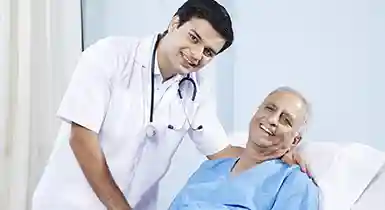
Cirrhosis is a liver disease where the normal healthy tissue is replaced by scar tissue. Due to this the liver is not able to perform its regular functions. The disease is a slow progressing and blood flow is blocked in the liver, hampering the production of vital substance, from the liver affecting the overall health status of an individual. The liver is the biggest organ in the human body and is responsible for various functions. It plays a major role in metabolism and removal of harmful substances in the bloodstream, including drugs and alcohol. It stores excess nutrients .It manufactures protein s for haemolytic activity of the body. Helps in digestion by producing bile and stores glucose in the form of glycogen. It aids in fat metabolism. Some Causes of Liver Cirrhosis are: Alcohol abuse, CHRONIC LIVER infection like hepatitis B & C, Fatty liver associated with obesity and diabetes are the most common causes of cirrhosis of the liver. Some Significant Symptoms Include: Liver Cirrhosis often has no signs or symptoms until liver damage is extensive. Some include Fatigue, Bleeding easily, Itchy and Yellow discoloration in the skin and eyes Fluid accumulation in the abdomen with Loss of appetite and feeling of Nausea. Swelling in your legs and Weight loss. It can progress to hepatic encephalopathy causing Confusion, drowsiness and slurred speech Diagnosis of liver disease: Before treatment of liver disease, the doctor will carry out investigations for diagnosis and progress of the disease. This will help to plan out the liver disease treatment. The tests include, for the cure to Liver Cirrhosis: Treatment for Liver Cirrhosis: Treatment for liver cirrhosis depends on the cause and extent of liver damage. The main aim of liver disease treatment is to slow the progression of scar tissue in the liver and to prevent or treat symptoms and complications of liver cirrhosis. AS PART OF treatment for cirrhosis hospitalization maybe recommended. Some modalities in cirrhosis treatments are: B) Treatment for complications of Liver Cirrhosis C) Liver transplantation (liver surgery) Liver transplant may be the only treatment option where the vital functioning capacity of the liver ceases. Liver transplant replaces the diseased liver with a healthy liver from a deceased donor or with part of a liver from a living donor. Liver Cirrhosis is the most common reason for a liver transplant and at Wockhardt Hospital we can provide this option having the infrastructure, clinical expertise and a transplant coordination team to assist in various organ donation protocols (liver donor or cadaver donor). All potential candidates for liver transplant undergo extensive testing to determine whether they are healthy enough to have a successful outcome following liver surgery. To know about liver cirrhosis, liver transplant surgery, treatment option for liver diseases or any digestive care condition, please contact our centres at Wockhardt Hospital. Wockhardt Hospitals, a chain of tertiary care super-specialty hospitals has more than 25 years of experience in the creation and management of Super Specialty Hospitals in India. We are a premiere hospital in the country specializing in the treatment of digestive disorders. We provide comprehensive digestive care to our patients. The digestive care centre at Wockhardt Hospitals makes it a centre for excellence with our clinical expertise, to treat such conditions affecting the digestive system. For further information or any gastroenterology services or liver transplant related query visit our experts at Wockhardt Hospital. Wockhardt Hospitals is regarded as a centre of excellence the healthcare domain, having facilities in North Mumbai (Mira road), South Mumbai (Mumbai Central), Navi Mumbai (Vashi), Nagpur, Nasik, Rajkot and Surat. Wockhardt Hospitals has state-of-the-art infrastructure. Our prime objective is patient safety and quality of care at all levels. The guiding philosophy is to serve and enrich the Quality of Life of patients and to make life win.
Guide to Dentistry & Dental Problems
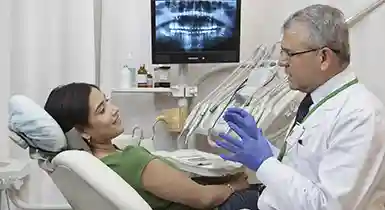
Dentistry is the branch of medicine that is involved in the study, diagnosis, prevention, and dental treatment of diseases, of the oral cavity and is the basis of family dentistry practices in India today. However, today the field of dental treatment has expanded into various specialities due to the different dental problems that are arising in its field. Dentistry can be further divided in various sub- specialities depending on the area of treatment: These are the common complaints one has when he would visit a dentist: Common dental procedures performed by dentists at dental clinics: Oral and Maxillofacial Surgery which is a field specialised in dental surgery: Some areas for treatment covered are: For any common dental complaints and specialised dental surgery please visit our centres at Wockhardt hospitals. Our trained and experienced dentists will be able to manage and assist any of you complaints. Our dental department is a highly specialised with infrastructure and facilities to carry our various procedures. Wockhardt Hospitals, a chain of tertiary care super-specialty hospitals has more than 25 years of experience in the creation and management of Super Specialty Hospitals in India. Wockhardt Hospitals have been regarded as centres of excellence in medical science with facilities in North Mumbai (Mira road), South Mumbai (Mumbai Central), Navi Mumbai (Vashi), Nagpur, Nasik, Rajkot and Surat. Wockhardt Hospitals is having state-of-the-art infrastructure whose prime objective is patient safety first and quality of care at the core of its strategy. The guiding philosophy is to serve and enrich the Quality of Life of patients and to make life win.
What is ENT & When to Consult an Otolaryngologists?

ENT is a surgical speciality which deals with conditions of the ear, nose, and throat (ENT) region. Doctors who specialize in this area are called, otolaryngologists, ENT doctors, ENT surgeons, or head and neck surgeons. The spectrum of the diseases involved in ENT which are treated by ear doctor is as follows: A) Diseases of the ear: You may need to see an ear, nose, and throat doctor if you have an ear disorder or condition, such as a hearing loss, ear infections, disorders that affect balance, tinnitus (ringing in the ears), or pain in your ear. ENT specialists can also treat congenital disorders of the ear (disorders you were born with). b) Diseases of the nose: ENT doctors often manage and treat problems that affect the nose, nasal cavity, and sinuses. Nasal & Sinus Allergies Nasal Polyps, Nose Bleeds. These problems can affect smell, breathing, and physical appearance. c) Diseases of the throat. Disorders and conditions that affect the throat can affect speech, singing, eating, swallowing, and digestion. ENT specialists can diagnose, manage, and treat these problems. d) Disease of head and neck: Ent specialist treat, tumours, trauma, and deformities of the head, neck, and face. (SKULL BASE SURGERY) E) Surgery: Cosmetic and reconstructive surgery in these areas. f) Neurology disorders: They can also manage problems with the nerves in the head and neck that control sight, smelling, hearing, and facial movements. Following are the symptoms that are person may suffer from and maybe guided to visit an ENT specialist: There are many surgical procedures done by ENT specialists : The ENT at Wockhardt has sophisticated and ultramodern diagnostic and therapeutic equipment’s such as laryngoscopy and endoscopic procedures. The department performs basic and advanced surgeries in Ear, Nose and Throat including advanced endoscopic skull base surgery. Our ENT doctors have clinical expertise in the ENT surgery and treating outpatient patients and paediatric Ent issues. Spectrum of Surgery Services offered at Wockhardt Hospital includes: For any complaint related to ear, nose and throat please visit our centres near you of Wockhardt hospitals for treatment. Wockhardt Hospitals, a chain of tertiary care super-specialty hospitals, has more than 25 years of experience in the creation and management of Super Specialty Hospitals in India. Wockhardt Hospitals have been regarded as a center of excellence in medica and surgical specialities with facilities in North Mumbai (Mira road), South Mumbai (Mumbai Central), Navi Mumbai (Vashi), Nagpur, Nasik, Rajkot and Surat. Wockhardt Hospitals is having state-of-the-art infrastructure whose prime objective is patient safety first and quality of care at the core of its strategy. The guiding philosophy is to serve and enrich the Quality of Life of patients and to make life win.
What is Oncology?

The definition of Oncology is the study of cancer and its treatment in medical science. Cancer develops in the body and spread to various organs. The initial site of the tumour is called the primary site of the cancer and further the spread of cancer leads to the secondary manifestations of the disease. Cancer cells are abnormal cells that grow uncontrollably forming a mass called a tumour. Normally cells are making up the human body structure and divide and grow accordingly. But any abnormal trigger or genetic predisposition can causes these cells to alter their growth. Cancerous tumour can be either benign or malignant and can grow and spread to other parts of the body. Cancer may also spread through the bloodstream to distant parts of the body. These parts may include the bones, liver, lungs, or brain. Some types of cancer do not form a tumour like leukaemia’s, lymphoma, and myeloma. Who is an oncologist and types of oncologists? An oncologist is a doctor who treats cancer and manages the patient care once a diagnosis is made of the same What are the types of specialities under oncology? The main field of oncology has three major areas for treatment of tumours: Other branches which can come under oncology are What does an oncologist do in the treatment of cancer? The role of the oncologist is to supervise a patient’s care from right from the diagnosis of cancer and throughout the course of the disease. What is the basic role of the oncologist? The oncologist’s role includes the following: The oncologist will explain the cancer diagnosis and its stage to the patient and will plan course of treatment modalities after providing the patient with all relevant treatment options and the recommendations. He plays a vital role in Delivering high-quality, compassionate care and assists the patient in managing cancer-related pain and other symptoms or treatment side effects of the treatment regime. At Wockhardt hospitals the department on oncology treats the patient through a multidisciplinary team approach where there is a team of oncologists .A person with cancer is often treated by a team of oncologists who specialize in different areas of oncology. This team approach at our units of Wockhardt hospitals includes is helpful a combination of surgery, chemotherapy, and radiation therapy. The team also includes supportive staff, nursing staff, pathology and referrals from other specialities for accuracy and efficiency of the treatment. What are Types of Cancers in oncology? Four main types of cancer are in oncology: What are modalities in Oncology treatment? In the branch of oncology the onco team will devise a treatment plan by the oncologist? Treatment options for your type and stage of cancer. Some of these options may include: Treatment through Surgery in Surgical Oncology where the removal of the tumour and surrounding tissue is carried out. The goal of the surgical oncologist is to diagnose cancer, find its location, remove the tumour following prerequisites (after understanding whether it is operable or not) and ascertaining its spread. The end result would be to restore the body’s appearance or function. 1) Surgical Oncology can be used for diagnosis of certain cancer through the biopsy procedures carried out through the surgical procedure which could be with an incisional biopsy or excisional biopsy. The importance of staging can be find out through surgery which ascertains the Staging surgery is performed the size of the tumour and its spread (lymph nodes). 2) In surgical oncology removal of the tumour can be done for primary or curative treatment for the tumour. In conventional surgery, the oncosurgeon makes large incisions through skin, muscle, and sometimes bone. Today less-invasive techniques may speed recovery and reduce pain afterwards. Types of minimally invasive surgery like laparoscopic minimal invasive surgery, cryosurgery and laser surgery are often now implemented in oncosurgery. Radiation therapy in Radiation oncology: In Radiation oncology, High-energy radiation through rays are given on tumour site to destroy cancer cells, in this type of treatment is called radiation therapy. In this type of oncology treatment specific number of treatments given over a set period of time. The goal of the radiation oncologist would be that the radiation destroys the cancer cells and slow down the growth of the tumour, without harming nearby healthy tissue. This type of therapy is given after the main treatment to target any remaining cancer cells and to shrink the tumour size. Types of radiation therapy in radiation Oncology include: External-beam radiation therapy is the most common type of radiation treatment. It delivers radiation from a machine located outside the body on the target site. Internal radiation therapy also known as brachytherapy. Radioactive material is placed into the cancer itself or into the tissue surrounding it to through implants. Chemotherapy in Medical oncology: Chemotherapy is the use of drugs to destroy cancer cells. It works by keeping the cancer cells from growing and dividing to make more cells. The main goal of chemotherapy is to get rid of all the cancer and keep it from recurring. Chemotherapy can be either standard chemotherapy, traditional chemotherapy, or cytotoxic chemotherapy. Medical Oncologists use Chemotherapy to delay or slow down cancer growth. In medical oncology chemotherapy given to the patient depends upon, dose, and treatment schedule depends on many factors such as type of cancer, size, general health of the patient, side effects In medical oncology chemotherapy is given through: Intravenous (IV) chemotherapy or arterial, Oral chemotherapy, Injected chemotherapy, topical chemotherapy. Other treatments protocols in Medical Oncology: – Hormone therapy. These treatments change the amount of hormones in your body. Hormones are chemicals your body makes naturally. They help control the activity of certain cells or organs. Doctors use hormone therapy because hormone levels control several types of cancers. – Targeted cells of gene therapy – Immunosuppressant Palliative care is an important aspect of cancer treatment and focuses on focuses on preventing, managing, and relieving the symptoms of cancer and the side effects of cancer treatment. It also provides comprehensive support to people living with cancer
Paediatrics and Neonatology
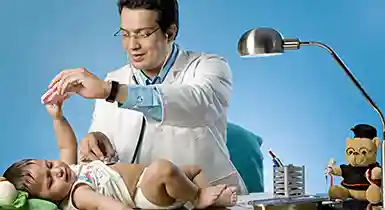
Paediatrics Is a specialty that diagnosis and treats ailments in children. The specialty covers all aspects in child from monitoring growth, vaccination, and treatment of general diseases to specific ones. Paediatrics and Neonatology: Paediatrics is a medical specialty that manages medical conditions affecting babies, children and young people. Neonatology is a subspecialty of paediatrics that consists of the medical care of new-born infants, especially the ill or premature new-born infant. It is a hospital-based specialty, and is usually practiced in neonatal intensive care units (NICUs). Wockhardt Hospital is well equipped with all types of neonatal and paediatric emergencies. Working with subspecialists in other fields, such as cardiology and pulmonology, our team of experts treats infants suffering from a variety of health conditions, diagnosing conditions at birth is very crucial for wellbeing of the infant and further management. We believe that neonatal care should start from foetal life. Paediatric department has well equipped NICU & PICU with round the clock paediatrician and neonatologist available for 24hrs NICU. Our team of well qualified Neonatologist, round-the-clock Neonatal Intensivists and specially trained Neonatology Nurses strive hard to provide the best treatment to all neonates. Nowadays Paediatrics in itself is divided into various specialities: General Paediatric Services: Paediatric Medicine: What are the Various Diseases that it Covers? Spectrum of Services as per sub specialities include: Paediatric Medicine: Paediatric Cardiology: The paediatric cardiology provides a complete spectrum of medical and surgical services and aims to provide care for children in a child-friendly environment. Paediatric Surgery: Deals with a wide range of surgical procedures required in children and focuses on the unique physiology and anatomy of the young patient, including newborn surgery, correction and treatment of various congenital anomalies and care of the child with accidental trauma. Common paediatric diseases that may require paediatric surgery include: Paediatric Neurology: Offers evaluation and management of children with diseases affecting nervous system and muscles, epilepsy, headaches and more : Paediatric Ophthalmology: is a sub-speciality of ophthalmology concerned with eye diseases, visual development, and vision care in children. Pediatric ophthalmologists focus on the development of the visual system and the various diseases that disrupt visual development in children. Pediatric ophthalmologists also have expertise in managing the various ocular diseases that affect children. Conditions include: Paediatric ophthalmologists are specially trained to manage the following disorders: Paediatrics Orthopaedics and Rheumatology: A Paediatric Orthopaedic Surgeon is dedicated to the care of musculoskeletal problems in children and adolescents.. Paediatric Orthopaedic Surgery is a valuable and powerful tool in the rehabilitation armamentarium for improving musculoskeletal function in several childhood disorders. Disorders treated: Paediatric haematology: Investigations and advise all blood disorders, including challenging diagnostic or therapeutic problems. Provides services for transfusion, infusion, chemotherapy as well as day care procedure. Paediatric Neonatology: A neonatologist treats the following conditions that may arise after delivery of a new born: Generally neonates are kept in a NICU which is fully equipped. A NICU is equipped with incubators including transport incubators, invasive and non-invasive ventilators, high frequency ventilator, phototherapy units, bili-blankets, multipara monitors, invasive blood pressure monitors, etc. to The NICU provides:
What is a Fracture?
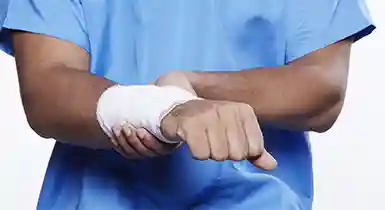
A bone fracture in a layman term means a crack in the bone. Causes of Fractures: Accident, fall, injury commonly because of car accidents, falls, or sports injuries, osteoporosis, infection of the bones (osteomyelitis) which cause weakening of the bones. A hairline fracture is caused by repeated stress over time. Stress fractures or hairline fractures are the result of accumulated trauma Symptoms of Fractures: First Line Management in treating Fractures: Put a cold pack at the site of the fracture and immobilize the limb with a splint. Carry out an x-ray for diagnosing a fracture Consult an orthopaedic doctor towards the treatment of a fracture. You may be advised a cast or splint for some duration of time and then physiotherapy. Surgery maybe advised with screws, plates, pins or wires to keep the bone in place. Types of Fractures: There are many types of fractures, but the main categories are complete, incomplete, compound and simple. Various Methods are there for Treating Fractures: Cast Immobilization where a plaster or fiberglass cast is the most common type of fracture treatment. Functional Cast or Brace The cast or brace allows limited or “controlled” movement of nearby joints. Traction Traction is usually used to align a bone or bones by a gentle, steady pulling action. External Fixation In this type of surgery, metal pins or screws are placed into the broken bone above and below the fracture site. Open Reduction and Internal Fixation During this surgery, the bone fragments are first repositioned (reduced) in their normal alignment, and then held together with special screws or by attaching metal plates to the outer surface of the bone. After treatment of fracture: Limiting your movement until the bone is solid enough for normal activity. Specific exercises will be recommended to you restore normal muscle strength, joint motion, and flexibility. Wockhardt Hospitals, a chain of tertiary care super-specialty hospitals has more than 25 years of experience in the creation and management of Super Specialty Hospitals in India. Wockhardt Hospitals, a chain of tertiary care super-specialty hospitals, has more than 25 years of experience in the creation and management of Super Specialty Hospitals in India. We are a premiere hospital in the country specializing in the treatment of musculoskeletal disorders. We provide comprehensive orthopaedic treatment and care to our patients. The bone and joint program at Wockhardt Hospitals makes it a centre for excellence in orthopaedics with highly skilled clinical expertise. For further information or any orthopaedic related query visit our experts at Wockhardt Hospital. Wockhardt Hospitals is regarded as a centre of excellence the healthcare domain, having facilities in North Mumbai (Mira road), South Mumbai (Mumbai Central), Navi Mumbai (Vashi), Nagpur, Nasik, Rajkot and Surat. Wockhardt Hospitals has state-of-the-art infrastructure. Our prime objective is patient safety and quality of care at all levels. The guiding philosophy is to serve and enrich the Quality of Life of patients and to make life win.
Ankle Sprain: Symptoms & Treatment

You are going for a morning jog, and you stumble. You suddenly experience a shooting pain up your foot, through your ankle and calf. When you try to walk again the pain gets worse. You may have developed an ankle sprain. Ankle sprains or twisted ankles are more common in active people and the ankle is one of the most frequently injured sites in sports and simple injuries. An ankle sprain usually occurs when you accidentally roll on the ankle. An ankle sprain occurs when the soft tissue in the joint is damaged. Symptoms of An Ankle Sprain are: Your ankle will bruise and the ankle will swell up to some degree and can be very painful. What is a high ankle sprain? A high ankle sprain is an ankle sprain that also involves the upper ligaments that hold the bones of the lower leg, the tibia and fibula, together. These ligaments take a lot of stress with weight bearing and need sufficient time to rest after an injury. High ankle sprain injury is usually seen in soccer or rugby players. Treatment of Ankle Sprain: 1) Applying ice to your twisted ankle as soon as possible will help to reduce blood flow to the injury and reduce swelling. A compress around the sprained ankle can be good for supporting the joint. 2) Pain killers can be taken. 3) Try to avoid putting any stress on your ankle could be the most important thing. 4) Ankle sprain exercises can be carried out by the third day to reduce the stiffness. Try some gentle stretches; including rotating your ankle slowly, and pointing your toes, then pulling them back towards your shin. 5) Avoid excessive movement 6) Massage therapy on you sprained ankle can be beneficial 7) Another mode for treatment of your ankle sprain is applying heat treatments when possible. Recovery Period for Sprained Ankle: Ankle sprain recovery time takes around ten days, but you may still have to restrict some movements. It is also recommended that you Continue stretching and exercising your ankle, continue the ankle sprain exercises if recommended. Note on Hospital: Wockhardt Hospitals, a chain of tertiary care super-specialty hospitals, has more than 25 years of experience in the creation and management of Super Specialty Hospitals in India. We are a premiere hospital in the country specializing in the treatment of musculoskeletal disorders. We provide comprehensive orthopaedic care to our patients. The bone and joint program at Wockhardt Hospitals makes it a centre for excellence in orthopaedics with highly skilled clinical expertise. For further information or any orthopaedic related query visit our experts at Wockhardt Hospitals. Wockhardt Hospitals is regarded as a centre of excellence the healthcare domain, having facilities in North Mumbai (Mira road), South Mumbai (Mumbai Central), Navi Mumbai (Vashi), Nagpur, Nasik, Rajkot and Surat. Wockhardt Hospitals has state-of-the-art infrastructure. Our prime objective is patient safety and quality of care at all levels. The guiding philosophy is to serve and enrich the Quality of Life of patients and to make life win.
Arthroscopy
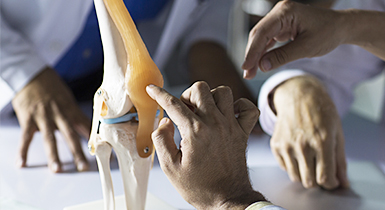
“Arthroscopy” comes from two Greek words: ‘arthro,’ meaning “joint,” and ‘scope,’ meaning “look.” Arthroscopy is an orthopaedic surgery that is used in the diagnosis and treatment of various joint conditions through a visual channel. Today in India we see many patients opting for this line of minimal invasive surgery to treat multiple condition. Common arthroscopic procedures include repairing cartilage and meniscus problems in the knee, and repairing rotator cuff tears in the shoulder. Joints that are Cared for are: During the process of arthroscopy, a camera attached to a fiberoptic light is inserted into the joint through a small incision (about one centimetre) and a picture of the inside of the joint is seen on a television monitor. Using fluid pumped through the joint visibility is ensured and debris is cleared from the joint for the procedure to be carried out. Arthroscopy Can be Done for the Following Procedures: Some areas where arthroscopy does not work in say knee surgery with arthritis Some Complications of the Arthroscopy Procedure: Infection, blood clots, nerve injuries, and problems with anaesthesia. The major advantage of the arthroscopy procedure is during recovery. Wockhardt Hospitals, a chain of tertiary care super-specialty hospitals, has more than 25 years of experience in the creation and management of Super Specialty Hospitals in India. We are a premiere hospital in the country specializing in the treatment of musculoskeletal disorders. We provide comprehensive orthopaedic treatment and care to our patients. The bone and joint program at Wockhardt Hospitals makes it a centre for excellence in orthopaedics with highly skilled clinical expertise. For further information or any orthopaedic related query visit our experts at Wockhardt Hospital. Wockhardt Hospitals is regarded as a centre of excellence the healthcare domain, having facilities in North Mumbai (Mira road), South Mumbai (Mumbai Central), Navi Mumbai (Vashi), Nagpur, Nasik, Rajkot and Surat. Wockhardt Hospitals has state-of-the-art infrastructure. Our prime objective is patient safety and quality of care at all levels. The guiding philosophy is to serve and enrich the Quality of Life of patients and to make life win.
Joint Pain: Causes & Treatment

The symptoms of joint pain are What is Rheumatoid Arthritis? An autoimmune disorder when the body’s immune system attacks its own body cells and tissues. In RA, the immune system attacks the tissue lining the joints and breaks it down over time. It is associated with pain, swelling, and often deformities particularly in the hands and knees. Flares are common for people with RA. Causes of Joint Pain: Treatment of Joint Pain: Role of Exercise in Joint Pain: Exercise helps keeps the joints moving and strengthens the muscles around them. Some Home Remedies for Joint Pain: Role of Surgery in Joint Pain: Joint replacement surgery is a common procedure these days; there are two main types of replacement, replacing either the whole joint or one side only. Wockhardt Hospitals, a chain of tertiary care super-specialty hospitals has more than 25 years of experience in the creation and management of Super Specialty Hospitals in India. We are a premiere hospital in the country specializing in the treatment of musculoskeletal disorders. We provide comprehensive orthopaedic treatment and care to our patients. The bone and joint program at Wockhardt Hospitals makes it a centre for excellence in orthopaedics with highly skilled clinical expertise. For further information or any orthopaedic related query visit our experts at Wockhardt Hospitals. Wockhardt Hospitals is regarded as a centre of excellence the healthcare domain, having facilities in North Mumbai (Mira road), South Mumbai (Mumbai Central), Navi Mumbai (Vashi), Nagpur, Nasik, Rajkot and Surat. Wockhardt Hospitals has state-of-the-art infrastructure. Our prime objective is patient safety and quality of care at all levels. The guiding philosophy is to serve and enrich the Quality of Life of patients and to make life win.














